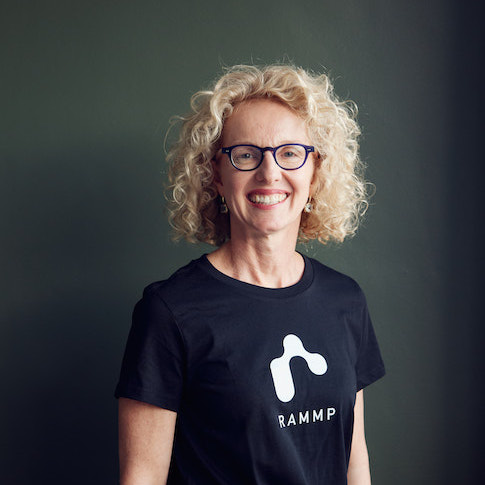
To have great returns, you need great ideas. To have great ideas, you need great thinkers, understand who they are, and “pay them unfairly”
Laszlo Bock, the former Head of HR at Google, wrote an excellent book in 2015. In the book, he describes (what was, and remains) a controversial policy of paying people “unfairly” based on the quality of their contributions, rather than their role or seniority:
At Google, we… have situations where two people doing the same work can have a hundred times difference in their impact, and in their rewards… In fact, we have many cases where people at more “junior” levels make far more than average performers at more “senior” levels. It’s a natural result of having greater impact, and a compensation system that recognises that impact.
Intuitively, we know that a “great idea” has value, and that “great thinkers” are more valuable than ordinary thinkers. Bock argues that an average thinker will never deliver an innovative and delightful solution, as they simply don’t have the capacity to do so. Average thinkers produce average results, and in order to create new ideas — to really innovate — you need to think in a less ordinary way. To innovate, you need outstanding thinkers.
The trouble is, how do you figure out who the outstanding thinkers are?
You are biased* (even if you don’t think you are)
It’s hard to imagine ourselves being biased or unfair. Perhaps that happens to other people, but when it comes to us, we are logical and make decisions based on facts. We are predictable and rational.
Except of course, we are not.
As humans, we exhibit predictable patterns of irrationality and biases of various flavours and styles. We are influenced by set principles, and inadvertently apply personality filters over ideas generated in the workplace.
We are biased, even when we try really hard not to be, and because of this, we may think that we are attributing kudos for a great idea to someone, when in fact, they are not the originator of the idea. Say what?
Veronica, a senior researcher in a high-tech company, had an observant boss. He noticed that many of the ideas coming out of the group were hers but that often someone else trumpeted them around the office and got credit for them — HBR.org
If Veronica‘s boss is less observant, then Veronica may not be recognised as the outsanding thinker. This can create a range of undesirable effects in the longer term, most of them culminating in low employee morale, high turnover, and a toxic work culture. Most importantly, it can destroy the opportunity for great ideas to be generated in your workplace.
Remove bias to recognise great thinkers fairly
Changing organisational and human behaviour is possible, but evolution takes time. It requires for us to gain awareness as individuals, and for these heightened levels of awareness to be reflected in the organisational structures that employ us. To eliminate bias in the workplace completely, we would have to change some fundamentals of how we are wired as humans. For bias to be removed from the workplace, we need to take a different strategy.
One of the strategies for recognising great thinkers is using a system of anonymity. Anonymity strips away the biases that we inadvertently exhibit — ageism, sexism, gender, culture, personality and position in the organisation — and allows us to focus on the merit of the ideas themselves. Systems for ideation that promote anonymity, like Uppit or Shell’s suggestion box, can bootstrap us while the slower process of behavioural and organisational change takes place.
Once the thinkers are recognised, pay them unfairly
If you are like me, you’d like to pay all your staff unfairly. In fact, you’d like to hire only excellent staff, and pay them all unfairly. In reality, budgets and predefined pay scales get in the way, we compromise, and hire “OK” people and pay them “OK” wages. In my experience, this always leads to “OK” results.
If you want great results, you need to figure out a way to afford great people.
Business, like weight gain, is really very simple. To make money, earn more than you pay out. To lose weight, consume less calories than you use in a day. There is no magic here.
Great ROI from great thinkers (and great ideas)
In most modern business, the currency of the workplace are ideas. If you look up from your laptop/phone/device right now and look around, you will see that everything around you began as an idea. Your coffee cup, your shoe, your phone, the clothes the appropriately socially distanced person is wearing. All these things began life as an idea. The ones that prevail were likely the great ideas.
Using the above basic laws of business, in order to pay staff unfairly (money out), we need the great thinkers to produce great ideas which will generate great revenues (money in). In short, the ROI on the great thinkers to great ideas must be… great.
While this sounds simple, the mechanics of calculating the actual ROI on a great idea are contentious. Part of the reason is tied up in the distribution of costs associated with taking an idea through to a commercial product: the old adage of genius being 1% inspiration and 99% perspiration (ironically, attributed incorrectly to Edison, who was not the originator of the quote 😊) diminishes the value of the idea, and preferencing execution.
In a normal market, selling a pure idea, a concept with no in-market-testing or MVP is extremely hard to do. Based on our experience at {x} solved (we commercialise ideas), an idea takes around 6 months of “added greatness” to prepare it for being revenue generating — and this happens if, and only if, we have great people in the room, actively generating the thousands of sub-ideas needed to morph the original idea into what becomes an MVP offering to the world.
Calculating ROI on great ideas
Returning to basic maths, and ignoring the passage of time:
ROI (great idea)=(Net Return/Cost )×100%
In a competitive marketplace, your Net Return (money in less money out) has to be greater than zero for your business to survive. To be competitive in a marketplace where ideas are currency, you have to be generating great ideas. Without great ideas, your Net Return will be zero — regardless of how much you pay your staff (cost). In other words, paying great people gives you an option to generate great ideas, and positive returns. Without great people, you don’t really have an invitation to the right party.
Removing bias from the workplace gives you the option of understanding who is great, which then gives you the option to then pay them unfairly, which in turn gives your business the opportunity of generating great ideas.
Great ideas make great returns possible.

 Anna Harrison
Anna Harrison